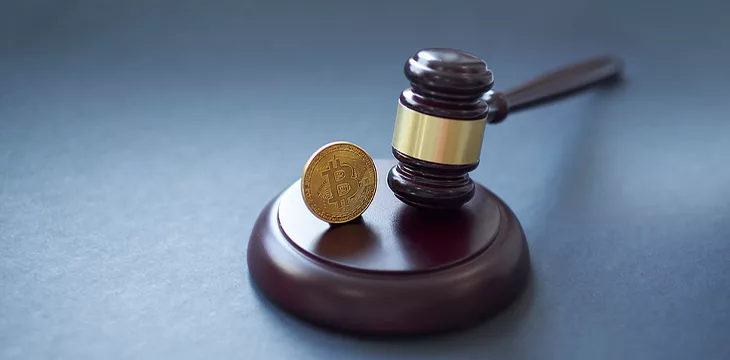|
Getting your Trinity Audio player ready...
|
Global regulators have ramped up their crackdown on rogue digital asset operators, with Taiwanese and South Korean authorities pushing to arrest the leaders of two virtual asset service providers (VASPs). In the United States, the Texas securities watchdog settled with a digital asset lender, which agreed to refund $1.8 million to Texan investors.
In Taiwan, authorities cracked down on the ACE exchange earlier this month, arresting founder David Pan and seizing over $6 million in cash and digital assets. Last week, the Taipei District Prosecutors Office requested a court order to detain Chenhuan Wang, the president of the exchange, for allegedly participating in a scam to push worthless tokens to customers.
Taiwanese authorities allege that Wang, who took over as president of the exchange in September, was essential in pushing MOCT and other worthless tokens.
When authorities arrested Pan earlier this month, ACE exchange quickly distanced itself. In a statement to media outlets, it clarified that Pan had stepped away from active operations since 2022.
Wang, who hadn’t been pulled into the scandal then, claimed that the exchange was assisting authorities with the investigations. He added that ACE planned to delist the controversial tokens while assuring users that their deposits were safe.
However, in the latest update, authorities claim that Wang was just as involved. They also requested for the judge to prohibit all visitation rights for Wang and four other alleged conspirators.
ACE, one of the three largest exchanges in Taiwan, brushed the arrests aside, telling media outlets: “We assure the security of user assets, and all services for deposit and withdrawal of cryptocurrencies and New Taiwan Dollar are functioning smoothly.”
‘Crypto’ lenders in South Korea, US face reckoning
As Taiwanese authorities cracked down on ACE, neighboring South Korea was pursuing the man behind a local digital asset lender’s financial woes.
In June 2023, South Korean lender Delio suspended withdrawals. It blamed its troubles on Haru, another VASP that rose to fame for promises of up to 12% returns on digital asset investment. Haru, in turn, blamed its woes on B&S Holdings, which allegedly lost 350 billion Korean won ($262 million) in the FTX collapse.
This week, South Korean authorities issued an arrest warrant for Bang, the man behind B&S Holdings. Due to the country’s privacy and media laws, the alleged orchestrator’s full name was withheld.
South Korean prosecutors have accused Bang of fraud and breach of trust. They have also obtained court orders barring the leaders of the three entities from leaving the country.
Meanwhile, in the U.S., the Texas State Securities Board (TSSB) has agreed with Abra, a digital asset lender, over securities fraud and deceptive practices. TSSB alleged in June that Abra had been insolvent for months. Additionally, by pushing its interest-bearing products, the firm was illegally selling securities products.
The two have now settled, with Abra committing to allowing investors from Texas to withdraw their funds. The company will notify any client with a balance exceeding $10 of the terms and convert any unclaimed asset to fiat, which it will mail to the investors.
Abra must also allow other state regulators to push for similar terms in their jurisdictions. Vermont will likely take the offer next, with the state’s Department of Financial Regulation heavily involved in the TSSB’s investigation.
TSSB claims that the company holds at least $13.6 million worth of digital assets from at least 12,000 U.S. investors. Of this, 1,600 reside in Texas and have $1.8 million with the platform.
Watch: Digital currency regulation and the role of BSV blockchain

 07-04-2025
07-04-2025 





